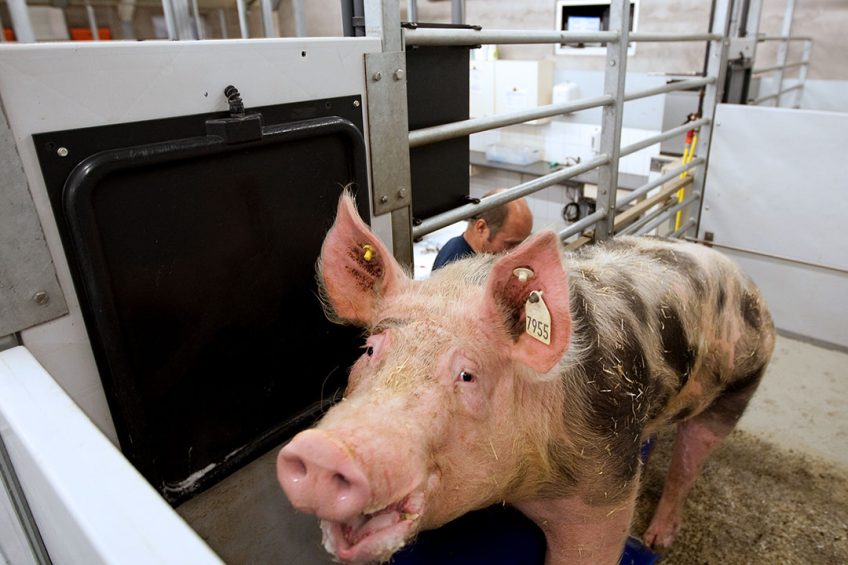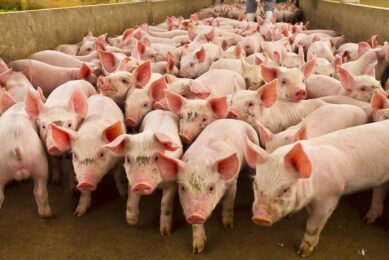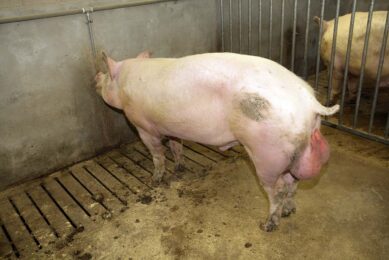Sugars might help to extend viability of pig sperm

An international consortium of researchers has been looking to find ways to extend the viability of pig semen using naturally-occurring sugars.
One way to achieve higher rates of success with artificial insemination (AI) in pigs and cattle is to extend the length of time that sperm can remain viable in the oviduct, the tube that connects the uterus with the ovaries. Sperm generally remains viable for 2 days or less, a fact which can reduce fertilisation in species like swine, in which there may not be synchronisation of semen deposits and ovulation.
Slowing down sperm maturation
The factors that extend viability are therefore important to investigate. A team of scientists from around the globe affiliated with the University of Illinois has been working in this area, and has identified naturally-occurring sugars in the oviduct that slow the maturation of pig sperm. If sperm maturation can be slowed, sperm viability could be extended.
The team members hail from Western Santa Catarina University in Brazil, Baylor College of Medicine in Texas, ICAR Research Complex for NEH Region in India, Shemyakin Institute of Bioorganic Chemistry RAS in Russia, and the University of Illinois. They published their new paper in the peer-reviewed journal PLOS One.
Oviduct biochemisty
This research group had previously shown that in the pig oviduct before fertilisation, sperm bind to 2 ‘glycans’ motifs (found on oviduct oligosaccharides) called bi-SiaLN and LeX. In the new study, the team examined the ability of these glycans to regulate the normal influx of Ca2+ ions into sperm, which affect their maturation rate and lifespan.
“After 24 hours, the viability of sperm bound to immobilised bi-SiaLN and LeX was higher (46% and 41% respectively) compared to the viability of free-swimming sperm (10–12%),” the team stated in their paper. The glycan motifs suppress Ca2+ influx and extend sperm lifespan but do not affect sperm capacitation or motility.
Future applications for pig sperm fertility testing
In future, these 2 glycans could be used to conduct sperm fertility testing. They could also be added to the oviduct during AI to increase AI success. Regarding the latter, team member David Miller, a professor in the Department of Animal Sciences and in the Institute for Genomic Biology University of Illinois, speculated that there are 2 potential ways, but neither might work.
“One would be to add soluble oviduct glycans to semen in hopes that they would stay attached to sperm but then be released at ovulation,” he said. “A second would be to add oviduct glycans linked to beads… prior to insemination. I’m not sure the glycans would stay attached to sperm in the oviduct or that sperm bound to these additional glycans would be released.”
“Might be practical to use for valuable pigs”
He adds that whilst one of the 2 glycans is simple and could be synthesised less expensively, the other is complex and difficult to purify. However, he will allow that with technical advances in sugar synthesis and if minimal amounts are required, “it might be practical to use for valuable pigs, but again, due to the important questions that must be addressed, I think it is premature to speculate whether this may be practical.”
The article in PLOS One was authored by Sergio Machado, Western Santa Catarina University, Xanxere, Brazil; Momal Sharif, Baylor College of Medicine, Houston, TX, United States; Govindasamy Kadirvel, ICAR Research Complex for NEH Region, Umiam, India; Nicolai Bovin, Shemyakin Institute of Bioorganic Chemistry RAS, Moscow, Russia; and David Miller, University of Illinois, Urbana, IL, United States.
 Beheer
Beheer












 WP Admin
WP Admin  Bewerk bericht
Bewerk bericht